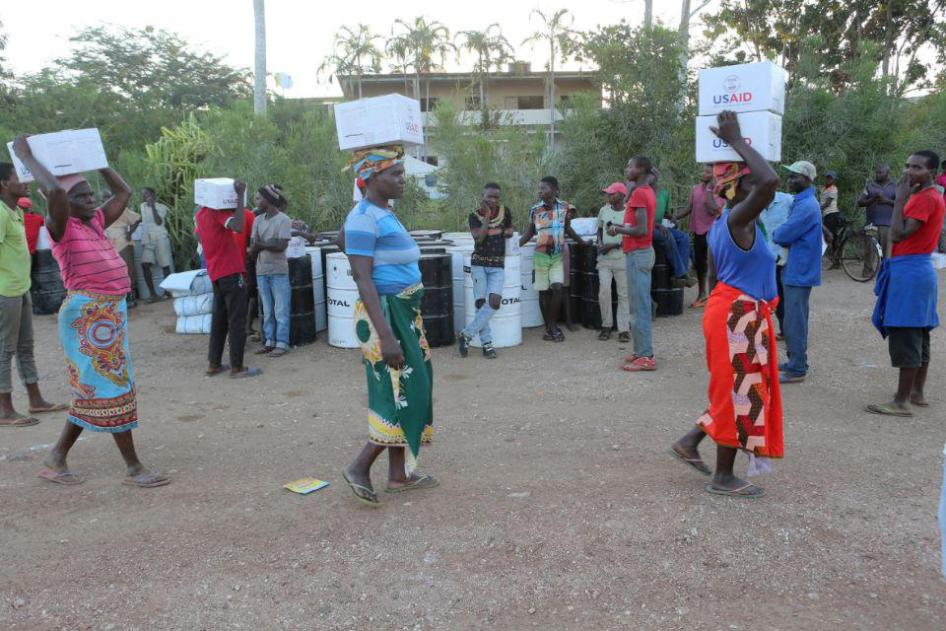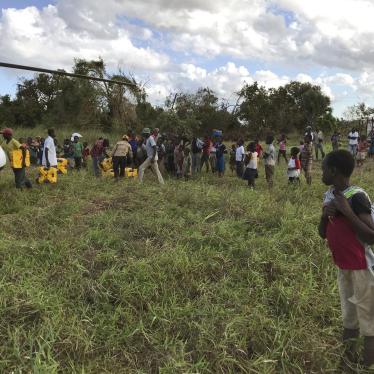Human Rights Watch recently reported on disturbing allegations that survivors of Cyclone Idai in Mozambique were being forced to have sex with community leaders in exchange for food. The next day, the United Nations pledged to investigate the allegations. It’s a chance to protect women and girls in Mozambique and end exploitation of vulnerable cyclone victims.
On May 3, the UN humanitarian coordinator for Mozambique, Marcoluigi Corsi, reiterated the UN’s “zero tolerance” policy on sexual exploitation and abuse, noting his team had trained hundreds of aid workers and volunteers on the prevention of sexual exploitation and abuse in Mozambique. He also admitted that despite their “best efforts” to prevent cases from occurring, the risk of sexual exploitation and abuse persists.
These are important steps towards ensuring other women and girls will not be forced to give sex for humanitarian aid. But the UN alone cannot help thousands of vulnerable women in areas where access to information is limited, and where UN survivor-support centers are nonexistent.
The Mozambican government and community leaders need to step up by investigating the allegations, holding those responsible to account, and sending clear messages across Mozambique that such abuse will not be tolerated.
Human Rights Watch is not aware of any actions yet taken by the Mozambican government to credibly investigate or punish those responsible, including in cases documented and reported on by Human Rights Watch and others.
Last month, Portugal’s Jornal de Noticias reported on the case of a mother of three in Lamego, a village in Tica town, Sofala province, who was coerced into sex on three occasions by one of the neighborhood secretaries, in exchange for bags of rice. The story was widely republished by the local Mozambican press, yet there is no public record of a government investigation, and authorities have not publicly reacted to the reports. A community official in Lamego told Human Rights Watch that the Tica town administrator called the secretary in for questioning, but no disciplinary action was taken against him.
The humanitarian coordinator said that the UN will engage with the government to ensure that any report of sexual exploitation “is addressed confidentially, promptly and comprehensively.” Now the UN needs to follow through on its pledges. Real progress will only be possible if the Mozambican government and community leaders publicly commit to ending sexual exploitation and abuse of those needing humanitarian aid, and urgently investigate the Cyclone Idai cases that have been reported.









